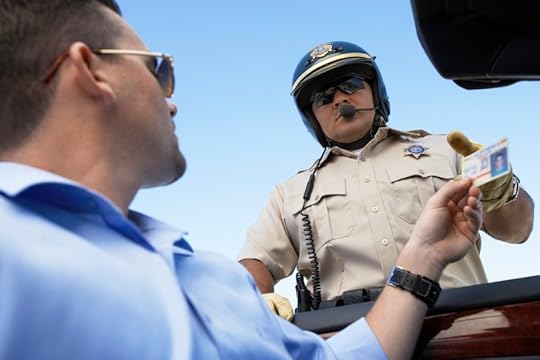How Should One Respond When Stopped by the Police?

Getting pulled over by the law is one of the most frightening things that can happen to any driver. In any case, knowing how to behave during a roadside stop in Canada is essential to ensure one’ safety, protection of rights, and a smooth interaction between one and the police officer.
It is generally understood that proceeding on the proper procedures and keeping calm and respectful can make a big difference in the outcome of the stop. This article outlines all the important steps and considerations for drivers in Canada who should face this situation, providing an instructive guide on “what to do when pulled over by police?”
What to Do FirstYour first act should be to acknowledge the police signal and safely pull over to the side of the road as soon as you can. Choose a safe place close to but away from traffic flow, and if possible, in the dark, stop at a well-lit area.
Signal your intentions clearly to the officer so he/she knows what you’re doing. After stopping, put your car in park, turn off the engine, and lower the window enough to communicate with the officer.
Your hands should preferably be visible on the steering wheel until it is not otherwise required. This simple act can help in reassuring and preventing misunderstanding on the officer’s part.
Speaking with the OfficerWhen the officer comes to your car, you should remain calm and polite. Listen to his instructions very carefully and respond against his questions truthfully and clearly.
Do not make any sudden moves or reach for any items in the vehicle unless instructed to do so by him. Your driver’s license, vehicle registration, and insurance information would have to be produced on these requests, and tell him exactly where to find them, then retrieve them slowly and deliberately.
Things would obviously be in the glove compartment or other places less immediately visible. State your intention ahead of time before reaching for them. This helps create any impression of reaching for a weapon or concealing something.
Knowing Your RightsGenerally, in Canada, police have an authority to seek particular types of information, and for most cases, it is required by law to provide them to drivers in general. You should prepare for valid driver’s license, auto registration, and proof of insurance.
All expired or non-forthcoming documents should be truthfully presented to the cop. There would be a possibility that you might be issued a warn or ticket; well, honesty is the best policy in most cases.
During that time, you will know your rights. You can be silent but must usually provide identification. You can only talk to a lawyer in detention or arrest.
If indicated by an officer that you are under arrest or detained, say that you wish to talk to a lawyer before answering any other questions. Be polite and respectful, despite having opposing views on the officer’s actions. Arguing would escalate the situation unnecessarily and cause more trouble.
Getting a TicketIf you get a ticket from the officer, accept it in a calm manner. Arguing by the side of the road is not going to change the officer’s mind and can later be dealt with through the proper process of law. Know all the details about the ticket from the infraction to the amount of fine and how to fight it if you want to contest it.
There might be a few circumstances when you think the stop is unjustified, or that the officer has acted inappropriately. From your side, this would still be the best thing to do as staying calm and being cooperative at the time of the probably unfair stop.
Later, you can lodge a formal complaint through the relevant police oversight body in your province in Canada. It would definitely help if you note down all details of the stop, including the name of the officer, any badge number (if visible), time and location, and possible witnesses – in case you want to officially complain.
Remain Calm and RespectfulIn brief, having knowledge of what to do when pulled over in Canada is crucial for every driver. Remaining calm, showing respect and cooperation with keeping both hands visible, providing clearly all requested documents, and understanding your basic rights will give you a safe and effective ability to navigate roadside stops.
Remember that roadside isn’t the venue for a dispute or argument about a ticket; rather, stay focused on having a calm and respectful encounter, and bring any concerns or disputes to the proper legal avenues afterward in Canada.
The post How Should One Respond When Stopped by the Police? appeared first on Geek Mamas .



